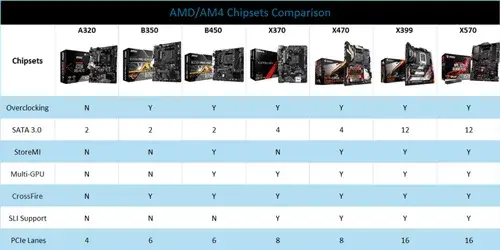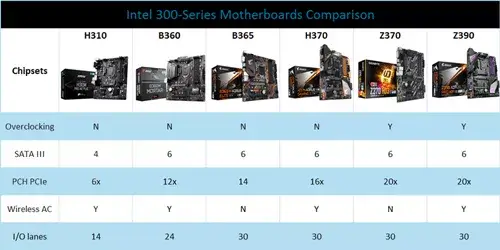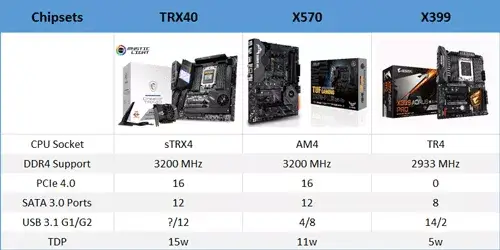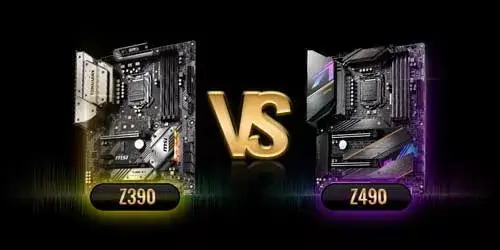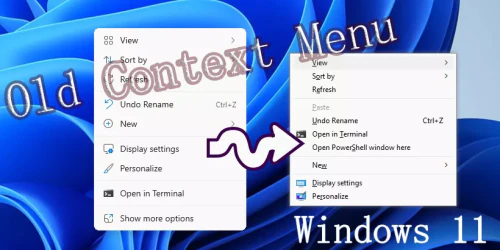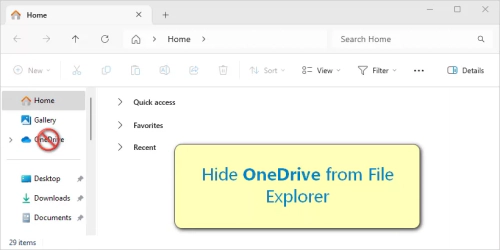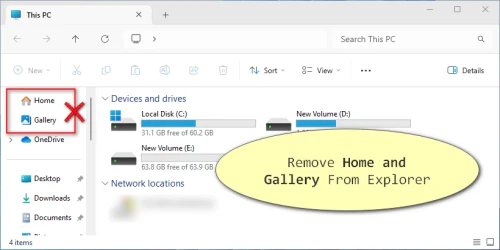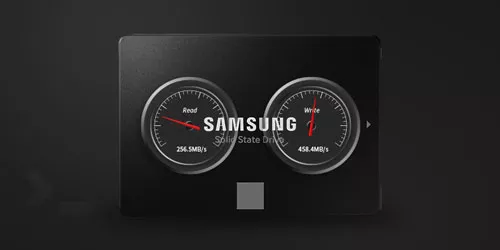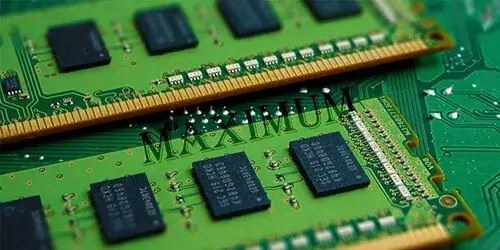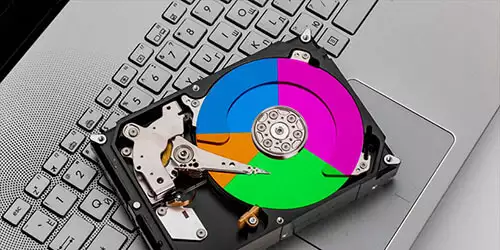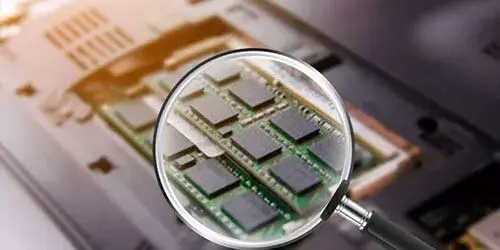AMD B550 vs B450 Chipset Comparison: Is B550 Worth It?

On June 16th, AMD released the B550 chipset, which is prepared for 3rd Gen AMD Ryzen processors and beyond. As its pre-generation, B450 chipset is still a pretty good choice for budget or mid-range pc. If you are in a dilemma over whether to choose B550 or B450 chipset or you are curious about the differences between B550 and B450, this article is right for you and it will show you AMD B550 vs B450 chipset comparison from all aspects.
Here's a table about the comparison of key specifications of B550 vs B450 chipset.
| Chipset | B550 | B450 |
|---|---|---|
| Socket Type | AM4 | AM4 |
| Overclocking | Yes | Yes |
| PCIe Lanes (Total/Usable) | 38/30 | 36/28 |
| PCIe 4.0 | Yes | No |
| PCIe 3.0/2.0 | 0/6 | 10/0 |
| Total USB | 14 | 14 |
| USB 3.2 Gen1/Gen2 | 2/2 | 2/2 |
| SATA 3.0 | 4 | 2 |
| Wireless Network | IEEE 802.11ax (WIFI 6) | IEEE 802.11 AC Wave2 (WIFI 5) |
| Wired Network Speed | 2.5G | 1G |
| Multi GPU | CrossFire and SLI | only CrossFire |
| RAID Support | Yes | Yes |
| StoreMI | Yes | Yes |
As can be seen from the table, the main differences between B550 and B450 include PCIe Gen, network speed, and multi-GPU. Moreover, they have different compatibility with Ryzen processors though they have the same socket type. Apart from these, there are little differences in other specifications such as RAID Support, StoreMI and the number of SATA 3.0 and USB. Let's take a closer look at the differences between B550 and B450 chipset.
1. B550 vs B450: PCIe Gen

The most significant difference between B550 vs B450 is PCIe 4.0. PCIe 4.0 has already been a trend in computer development and the ultra-high transmission rate of PCIe 4.0 interface can dramatically improve the performance of devices such as graphics card and hard disk. B550 chipset possesses PCIe 4.0 x4 M.2 slot for SSDs and PCIe 4.0 x16 slot to make full use of graphics card, but the general purpose PCIe lanes and CPU chipset uplink use PCIe 3.0 instead, which is also an upgrade over B450 chipset. B450 chipset only offers PCIe 3.0 slot for graphics card and SSDs and PCIe 2.0 general purpose lanes.
2. B550 vs B450: Compatibility

When it comes to the compatibility with AMD Ryzen CPU, B450 chipset is superior to B550. B550 chipset is prepared for Ryzen 3000 processors and the upcoming AMD Ryzen desktop processors with the Zen 3 Architecture (Ryzen 4000 processors). However, AMD said that B550 chipset isn't compatible with Ryzen 1000/2000 processors or Ryzen 3000 APUs like Ryzen 3 3200G and Ryzen 5 3400G. And whereas B450 chipset supports all Ryzen series (Ryzen 1000/2000/3000 processors). Besides, Beta BIOS updates will open up Zen 3 support for B450 chipset, which means that most (not all) B450 motherboards will support Ryzen 4000 processors but with some features missing. So, when choosing B550 or B450, it is necessary to consider its compatibility with Ryzen processors.
3. B550 vs B450: Network Speed
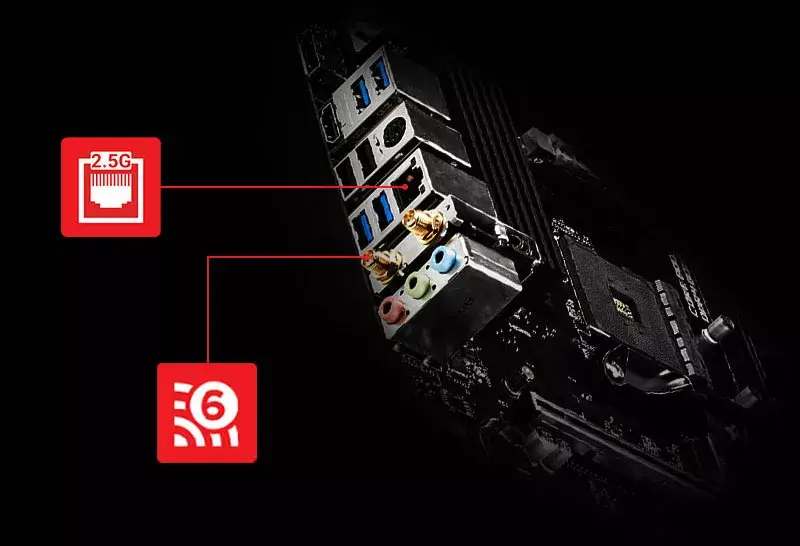
With the addition of PCIe 4.0, one of the dramatical improvements in AMD B550 chipset is network speed. In term of wired network, The LAN speed of B550 chipset is increased from 1 Gbps (the LAN speed of B450) to 2.5Gbps. As for wireless network, B550 chipset supports WIFI 6 (aka 802.11 ax) while B450 chipset only supports IEEE 802.11ac. So, the wireless speed of B550 chipset is much more powerful than that of B450. But having said that, most users don't have a fast-enough internet connection to saturate 1 Gbps and the network speed supported by B450 chipset is powerful enough for most users. So, the improvement of network speed between B550 and B450 does not have much impact on most users.
4. B550 vs B450: Multi-GPU

A slight difference between B550 and B450 chipset is multi-GPU support. B550 chipset features support for AMD CrossFire and NVIDIA SLI and whereas B450 only supports AMD CrossFire. But frankly speaking, this technology is dispensable for most computer users. Because the performance of single GPU is powerful enough and fewer and fewer games support multi-GPU configurations nowadays.
5. B550 vs B450: VRM and cooling
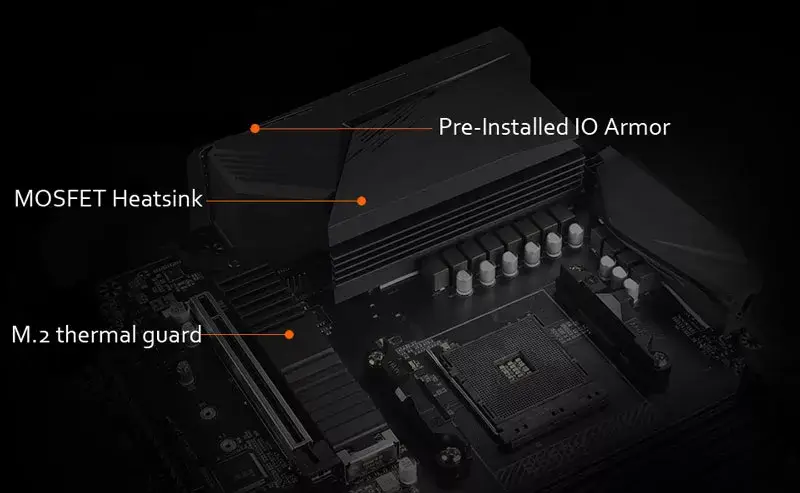
Another upgrade in B550 chipset is VRM and cooling system, which means that it is more excellent in thermal performance. But it only matters when you match it with a high-end Ryzen 7 or 9 processor or you plan to overclock. Otherwise, there is no need to consider this aspect.
Bottom Line: Is B550 worth it?
To summarize, compared to B450 chipset, B550 chipset has a certain degree of improvement in some specifications like PCIe 4.0 and network speed. But generally speaking, these improvements don't have much effect in real-world performance and practicality. Besides, B450 chipset has much better compatibility with AMD Ryzen processors and value for money (about $50 saved). The release of B550 doesn't mean that B450 chipset has been phased out and the features of B450 chipset are still powerful enough for most users. Thus, from my perspective, B550 chipset is not a good choice unless you are intended to build a future-proof platform for Ryzen 4000 processors and enthusiastic about PCIe Gen 4 GPU or SSD (PCIe 4.0 M.2 NVMe SSD).


